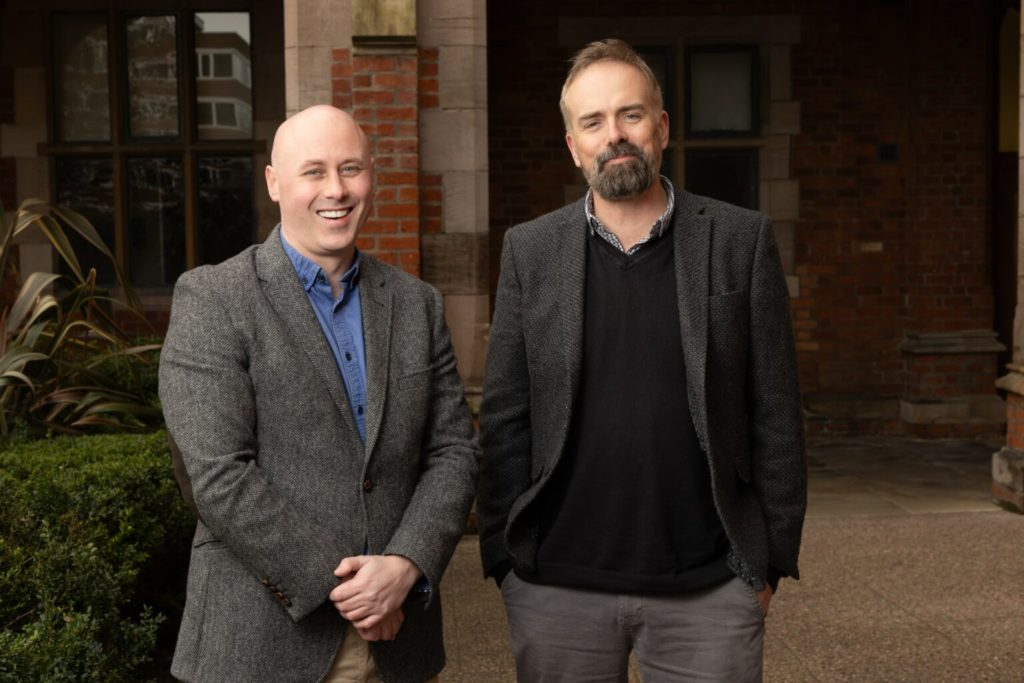A BELFAST biotech firm has secured $1.75m in seed funding to support the development of its AI-driven drug discovery platform.
AMPLY Discovery have developed a drug discovery engine which uses AI to find cures for diseases caused by people’s different genetic variations.
The platform analyses biological molecules, identifies potential treatment targets, and bio-prints real molecules that can be quickly tested and improved in a laboratory.
Spun-out from of Queen’s University Belfast, the platform was developed in the Creevey Lab and based on over 10 years of scientific research.
AMPLY was founded by leading computational biology scientist Dr Ben Thomas, Dermot Tierney and Prof Chris Creevey to commercial the technology in order to develop it further.
 Pictured at Queen’s University, Belfast (l-r) Amply Discovery's Dermot Tierney and Ben Thomas
Pictured at Queen’s University, Belfast (l-r) Amply Discovery's Dermot Tierney and Ben Thomas“Ten years ago, I began combining financial modelling expertise with computational biology to create a drug discovery platform,” Dr Thomas, AMPLY CEO and Chief Architect, said.
“Evolution has spent billions of years perfecting natural defence mechanisms, and now we're using AI to unlock this wisdom,” he added.
“This isn't just professional for me; my father died from a drug-resistant infection our healthcare system couldn't treat.
“At Queen's, I built AMPLY to tackle deadly diseases differently, creating technology that will save lives when current treatments fail.”
Currently the platform is being used to develop drugs to fight aggressive cancers, such as triple-negative breast cancer, and drug-resistant pathogens, which threaten to make existing antibiotics ineffective against infections
Today they announced their successful funding round, which was led by London-based Twin Path Ventures, a specialist AI investor, with participation from US-based Venture Science, Co-fund NI, the British Business Bank, and QUBIS Limited.
“Whether it's aggressive cancers or Antimicrobial Resistance (AMR), the fundamental problem is the same: existing treatments are failing too many patients because a one-size fits all approach does not take into account genetic diversity,” an AMPLY spokesperson said.
“This means aggressive cancers like triple-negative breast cancer continue to have poor survival rates despite advances in treatment,” they added.
"Each year, bacteria’s resistance to antimicrobial drugs directly causes more than 1.27 million globally and contributes to nearly five million more.
“AMPLY's approach tackles each challenge using the same core innovation, which is designed to find effective treatments where current options are inadequate.”
Mr Tierney, who is Co-Founder and Chief Operating Officer at AMPLY, said their successful funding round is a “vote of confidence” in their work.
“We're deploying our platform against complex cancers and multidrug resistant pathogens that threaten our current antibiotic arsenal,” he said.
“This investment is a vote of confidence in AMPLY, especially given the challenging fundraising environment for seed-stage biotechs.
“It enables us to execute our plan and target therapeutic areas with significant unmet needs.”

